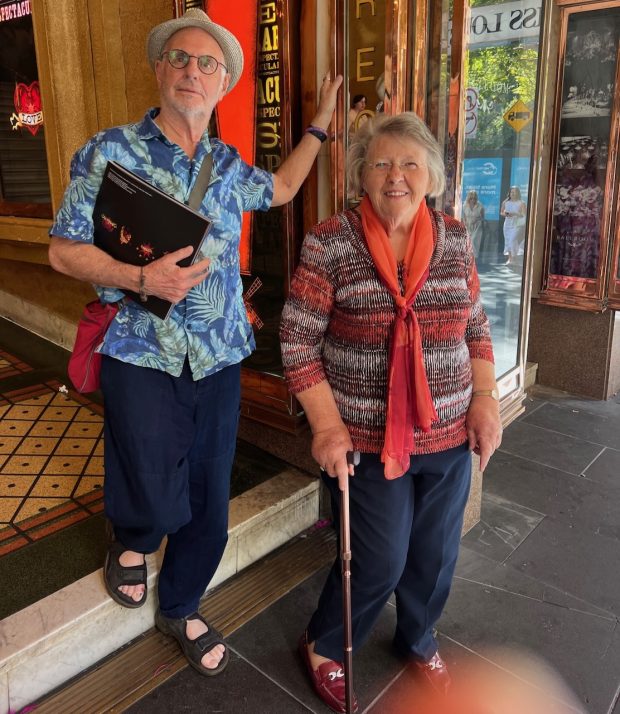June 14, 2025
Euthanasia for People with Advanced Dementia?
The issue of someone who has advanced dementia getting help to die is a challenging question for most people.
At the current time, this is exactly what my, or rather my wife Fiona’s, family is going through.
Her mother Pam is in the advanced phase of this terrible disease with no cure.
She is in and out of hospital.
Fiona’s father is determined to care for her at home until her last breath. His efforts are admirable and border on heroic.
Fiona and her brother have huge mixed feelings.
Fiona is convinced that her mother would not have wanted ‘to live like this’.
But she acknowledges also that there are moments of joy in Pam’s every day life. There are certainly these moments for her father: Pam’s primary carer.
But if Pam, who lives in Melbourne Australia, had had a Dutch or Belgian-style advanced directive (which can include instructions on euthanasia should the owner of the document become incapacitated with dementia) one wonders what it would have said?
We will never know …
As a (former) doctor I understand also how difficult the issue is for medical practitioners alike. There must be a better way?
Philip Nitschke, Haarlem NL, 14 June 2025

The author with Pam, Melbourne February 2024
Belgian media outlet HLN.be this week surveyed its readers on the issue.
This is what they said.
Chris Ulrichts:
‘No one should be forced to continue living as a shadow of their former self, against their express wishes. It is ethically problematic that we are currently keeping people alive in conditions that they themselves, in their right mind, have said they never want to be in. Why should a prior declaration of intent — clear, repeated and voluntarily made — carry less weight than a current wish that can no longer be expressed due to illness? Give citizens control over their own end!’
Ronny Cuypers:
‘I find it very difficult to decide now how ill I must be to undergo euthanasia. It seems impossible to me to know how good or how bad I will feel when I have dementia. That is why I only want to undergo euthanasia if I am being kept alive by various machines, or if it is clear that I am in a great deal of pain.’
Daniel Borremans:
‘Euthanasia in cases of dementia is a difficult issue. My wife has early-onset dementia and both she and I were previously convinced that we wanted euthanasia. However, as the disease progressed, uncertainty crept in. Ultimately, just before she became incapacitated, she decided not to opt for euthanasia after all. My wife is now happy in her little world and I am glad she is still here. She has some very beautiful moments and I am evolving with the disease.’
Marc Gabriels:
‘In my opinion, no two cases of dementia or Alzheimer’s are the same. My wife had progressive aphasia, which means that you are trapped in your body, fully conscious — I think — and slowly slipping away until you have no control over your body anymore. She could no longer express herself, but her eyes spoke volumes. Do you then have to make the choice to take someone’s life? In my case, I couldn’t make that decision, because every time I was with her, she gave me a loving, tender smile.’
Jen van Dee:
‘If you have stated this in advance in your living will, it should certainly be possible. Everyone should think in advance about what they do and don’t want. It’s called advance care planning. It would save a lot of arguments at the hospital bedside. Nowadays, it often happens that one child says that their mother or father wouldn’t have wanted it, while another child says that everything possible should be done. As a nurse, I come across this regularly.’
Marianne Van Hoof:
‘My mother wanted euthanasia at a stage when I felt she was still capable of making that decision. However, her GP no longer considered her mentally competent. The neurologist she had been seeing every six weeks for two years did find cognitive loss, but ruled that she was not yet demented, so saw no grounds for euthanasia. In the end, my mother starved herself (un)willingly and died 10 months later, emaciated. At the end, she didn’t even want to see her own children anymore. Is that what we consider a dignified death?’
Denise Adriaenssens:
‘I recently filled out the euthanasia forms and had them registered with the municipality. I have made this decision after careful consideration and am mentally healthy to date. My wishes are therefore clear. But if I suffer from dementia in the future, those documents will suddenly no longer count. You make that decision before dementia sets in, so yes, that living will must be respected. Otherwise, what is the point?’